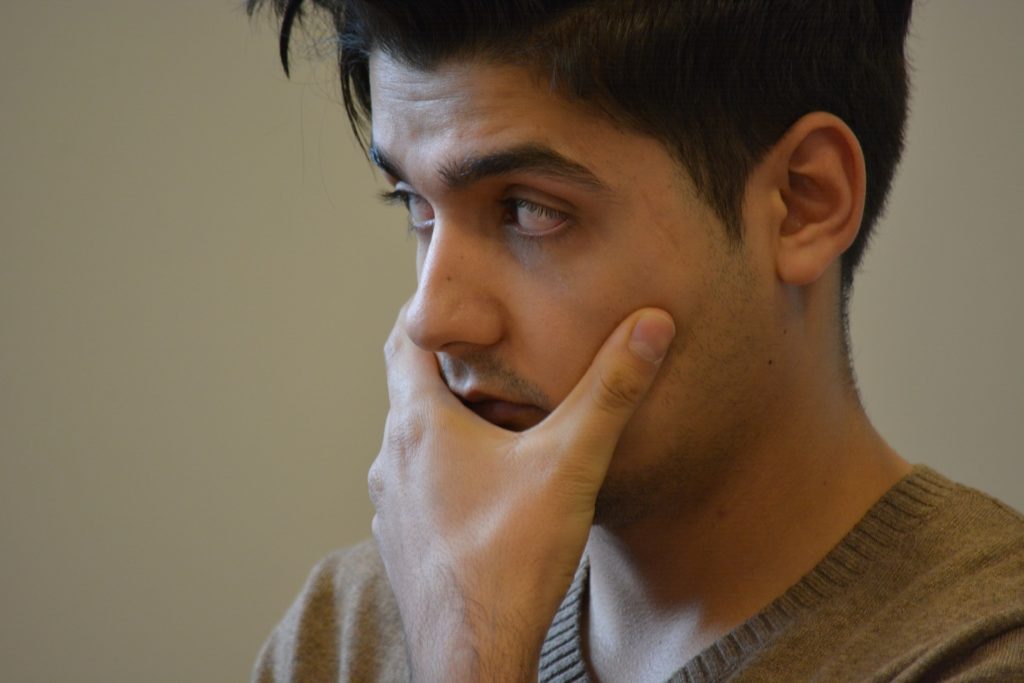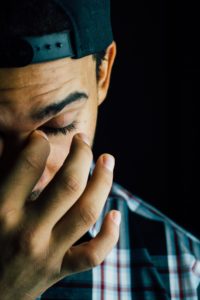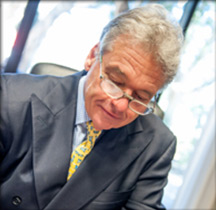
Addiction Hope Medication-Assisted Treatment Interview of Dr. Mark Gold & Dr. Brian Fuehrlein – 8-17-20
In Part 3 of this 4-part series, you will read the continuation of an important and informative interview between Jacquelyn Ekern of Addiction Hope and Dr. Mark Gold and Dr. Brian Fuerhlein, two leading doctors in the addiction field discussing medication-assisted treatment of addiction.
Dr. Gold and Dr. Fuehrlein continue their conversation on substance use disorders and medication-assisted treatment by describing the ins-and-outs of Naloxone and Narcan.
Medication-Assisted Treatment, Part III – The Specifics of Naloxone
JE: Dr. Gold, do you remember when you started treating patients in this field what it looked like then and can you tell us about that and how it has changed?
MG: Absolutely. I began giving Naloxone and Narcan in the Yale New Haven Emergency Room around 1975. It was in an ampoule made of glass and what we did was pop open the Naloxone vial, draw out and syringe the Naloxone, find a vein on the individual that was near death, and inject it into the vein.
A few things I remember about this time, one – I remember always cutting my hands. We didn’t really have gloves because we were reacting to the emergency as quickly as possible and trying to save the person’s life. With all of the steps required, it was chaotic.
The second thing I remember was learning that you could miss a vein and still save the patient because the drug would spread subcutaneously and that was enough to revive them.
Third, I learned that the patients were unlike patients that are revived with the Heimlich Maneuver, CPR, or Cardioversion in that they were the least grateful of those four populations being revived.
In an emergency department, you will see people that have airway obstructions. You get the blockage out of the airway, they breathe, and often say “thank you Doctor/team for helping to save me.”
When you see someone who has had a cardiac arrhythmia and you give them CPR, they recover and also often thank the whole team. Sometimes, they even make a donation to the hospital because they are so excited and grateful.
With patients that are given Naloxone, they were often not excited. Sometimes, they were even mad at you. Occasionally, they expressed that you interrupted their high – that they weren’t going to die but, somehow, you decided that they were going to die and you ruined the effect that they were having on this drug.
For those that will be working in the Emergency Room, like Dr. Fuehrlein, that this will happen but they do this job because years after that rescue, that person will be grateful.
It isn’t for the gratitude that we do this job. We do this because it’s the right thing to do. Nowadays, after giving the Naloxone, we would try to facilitate treatment. In 1975, we had no other treatment outside of Methadone.

We eventually got Naltrexone at Yale, but it was a pill that they would need to take every day, three times per week. We learned that, as time went on, they would convince themselves that they didn’t need to take it, would stop, and would overdose again.
The only people we found that Naltrexone worked with were doctors because their licensing bureau would force them to take it. It was really coercive treatment because someone in the Board of Medicine would tell them, “if you don’t take this and follow your treatment plan, you cannot be a doctor in our state.”
Some people that worked in the financial industry, which were drug-free occupations at the time, would manage to ensure that person would comply with the treatment.
Except for those rare groups, Naltrexone wasn’t a particularly viable treatment compared to opioids. It wasn’t until injectable Naltrexone that lasted for 30 days came about that it became a more viable treatment.
At Yale today, they use that treatment on people who are willing to be treated. The go-to treatments these days are Buprenorphine and suboxone.
BF: To add to that, the Naloxone that Dr. Gold is referring to is not treatment for the underlying opiate use disorder diagnosis.
You can think of it as, for example, if someone has a heart arrhythmia, they may need to be shocked to have their life saved, but they still have an underlying heart condition and need to take medication for maintenance and treatment.
If you just shocked them and saved their life and ignored the fact that they still have an underlying heart problem and didn’t give them treatment for that problem, the chances that they will need a shock again down the road or might die is pretty high.
When patients come to us following an overdose, administering Narcan will save their life. Bringing them back is one thing, but we also need to address this underlying opiate use disorder as a diagnosis.
This is where, as Dr. Gold mentioned, Medication Assisted Treatment such as Buprenorphine, Suboxone, Methadone, or Vivitrol would be prescribed. The good news is that these three medications are incredibly effective for opiate use disorder.
Our goal in the Emergency Room that I run is to get every single patient with an opiate use disorder, whether they needed Narcan to resuscitate them or not, to get them on maintenance therapy.
Usually this is Buprenorphine, but, often our patients get started on Methadone in the Methadone clinic. Here, we start with Buprenorphine and have a process by which to get them initiated and stabilized on it.
The same process exists with the extended-release Naltrexone, however, that is a little more difficult. If we can get patients stabilized on these medications, the risk of overdose, death, and/or relapse goes way down.
JE: That is great news. Can you talk a bit about Vivitrol and why we are hearing a lot about that lately?
 MG: The Vivitrol is the injectable, long-acting Naltrexone. It is approved by the FDA for the prevention of relapse in alcohol use disorder and craving in opioid use disorder.
MG: The Vivitrol is the injectable, long-acting Naltrexone. It is approved by the FDA for the prevention of relapse in alcohol use disorder and craving in opioid use disorder.
Many people are surprised to find that one medication is safe and effective for two addictions, much less the addictions of alcohol and opioids, but it is approved for these disorders.
We have used Vivitrol, which is the brand name for Naltrexone, in Florida for Anesthesiologists with opioid use disorder that wanted to return to the operating room.
Researchers at the University of Pennsylvania have found that Naltrexone blocks the brain’s response to cues. Previous to using Naltrexone, an anesthesiologist would see a morphine bottle, and it triggers dopamine in their brain and gets them in the mindset of using and craving.
Naltrexone is particularly good at preventing that. There is no other injectable, long-acting Naltrexone than Vivitrol. One injection works for 30-days.
If your goal was to get a person to be opioid-free for 12-months, they would need to detox first and then need come in for 12 shots, once a month for the year.
Studies show that, as long as people are detoxed, the treatments are roughly equivalent, and I don’t think it really matters which treatment and often comes down to cost and access.
I think it is an important service to tell people on Addiction Hope that there is hope and that we have three safe and effective FDA-approved treatments that cut overdose deaths, cut relapse rates, and improve a person’s ability to function and re-enter society.
This is wonderful when you consider that we have no safe and effective treatments for other substances such as cocaine, methamphetamine, or cannabis. We are working on a variety of them, but we really only have these medications for alcohol use disorder and opioid use disorder.
Finish up this series by reading Dr. Gold and Dr. Fuerhlein’s discussion on medication-assisted treatment, fighting substance use disorder stigma, and preventing gateway substance use.
Please See Part 1 of the Interview
Please See Part 2 of the Interview
Please See Part 4 of the Interview
Source:
Virtual interview with Dr. Mark Gold & Dr. Brian Fuehrlein conducted by Jacquelyn Ekern, MS, LPC, – Founder & President of Eating Disorder Hope and Addiction Hope on August 17, 2020.
About the Interviewee:
 Mark S. Gold, M.D., Professor, Washington University School of Medicine – Department of Psychiatry, served as Professor, the Donald Dizney Eminent Scholar, Distinguished Professor and Chair of Psychiatry from 1990-2014. He was the first Faculty from the College of Medicine to be selected as a University-wide Distinguished Alumni Professor and served as the 17th University of Florida’s Distinguished Alumni Professor.
Mark S. Gold, M.D., Professor, Washington University School of Medicine – Department of Psychiatry, served as Professor, the Donald Dizney Eminent Scholar, Distinguished Professor and Chair of Psychiatry from 1990-2014. He was the first Faculty from the College of Medicine to be selected as a University-wide Distinguished Alumni Professor and served as the 17th University of Florida’s Distinguished Alumni Professor.
Dr. Gold is also a Distinguished Fellow, American Society of Addiction Medicine; Distinguished Life Fellow, the American Psychiatric Association; Distinguished Fellow, American College of Clinical Pharmacology; Clinical Professor of Psychiatry, Tulane University School of Medicine; Professor( Adjunct), Washington University in St Louis, School of Medicine, Department of Psychiatry; National Council, Washington University in St Louis, Institute for Public Health
Learn more about Mark S. Gold, MD
About the Transcriber:
 Margot Rittenhouse, MS, PLPC, NCC is a therapist who is passionate about providing mental health support to all in need and has worked with clients with substance abuse issues, eating disorders, domestic violence victims, and offenders, and severely mentally ill youth.
Margot Rittenhouse, MS, PLPC, NCC is a therapist who is passionate about providing mental health support to all in need and has worked with clients with substance abuse issues, eating disorders, domestic violence victims, and offenders, and severely mentally ill youth.
As a freelance writer for Eating Disorder Hope and Addiction Hope and a mentor with MentorConnect, Margot is a passionate eating disorder advocate, committed to de-stigmatizing these illnesses while showing support for those struggling through mentoring, writing, and volunteering. Margot has a Master’s of Science in Clinical Mental Health Counseling from Johns Hopkins University.
As a freelance writer for Eating Disorder and Addiction Hope and a mentor with MentorConnect, Margot is a passionate eating disorder advocate, committed to de-stigmatizing these illnesses while showing support for those struggling through mentoring, writing, and volunteering. Margot has a Master’s of Science in Clinical Mental Health Counseling from Johns Hopkins University.
The opinions and views of our guest contributors are shared to provide a broad perspective of addictions. These are not necessarily the views of Addiction Hope, but an effort to offer a discussion of various issues by different concerned individuals.
We at Addiction Hope understand that addictions result from multiple physical, emotional, environmental, and genetic factors. If you or a loved one are suffering from an addiction, please know that there is hope for you, and seek immediate professional help.
Published on December 2, 2020
Reviewed & Approved by Jacquelyn Ekern, MS, LPC on December 2, 2020
Published on AddictionHope.com
